Coming up with a winter maintenance routine for your garden and surrounding area can sometimes feel confusing. Do you want to shovel the snow in your driveway or front yard into the street but don't know if that's okay? Is it legal to shovel snow into the main road?
Well, we've done some research into this question and have the answers below!
We do not recommend shoveling the snow from your yard into the street. According to many city codes and community associations, shoveling snow into roadways can result in fines and cause danger to people driving on them.
Instead, always shovel snow into neat piles under trees, or consider shoveling it near a street corner. Regardless, keep the snow out of any walking path or street.
As we start this post, we will cover all things shoveling snow and give some advice on where to put it. Whether you recently moved to a colder climate, hate piles of snow in your yard, or have additional questions, we're here to help. With that said, let's dive right into this topic!
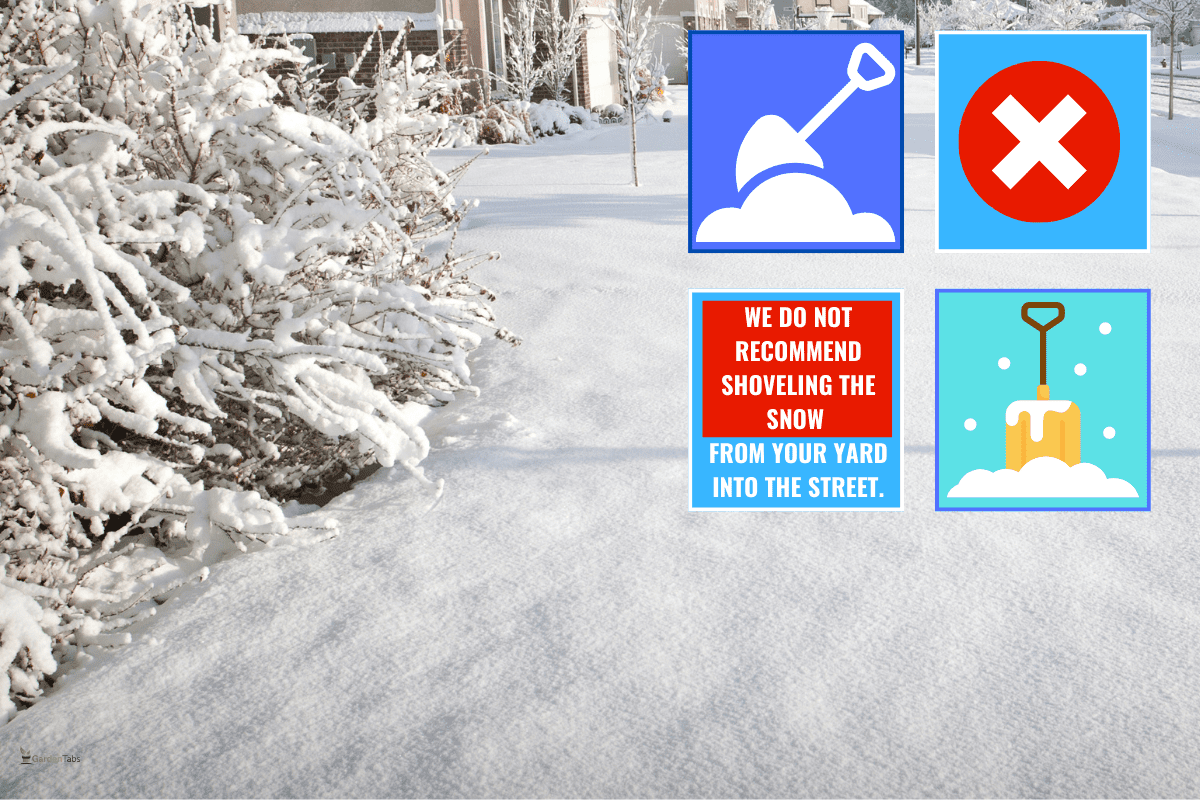
Is It Okay To Shovel Snow Into The Street?
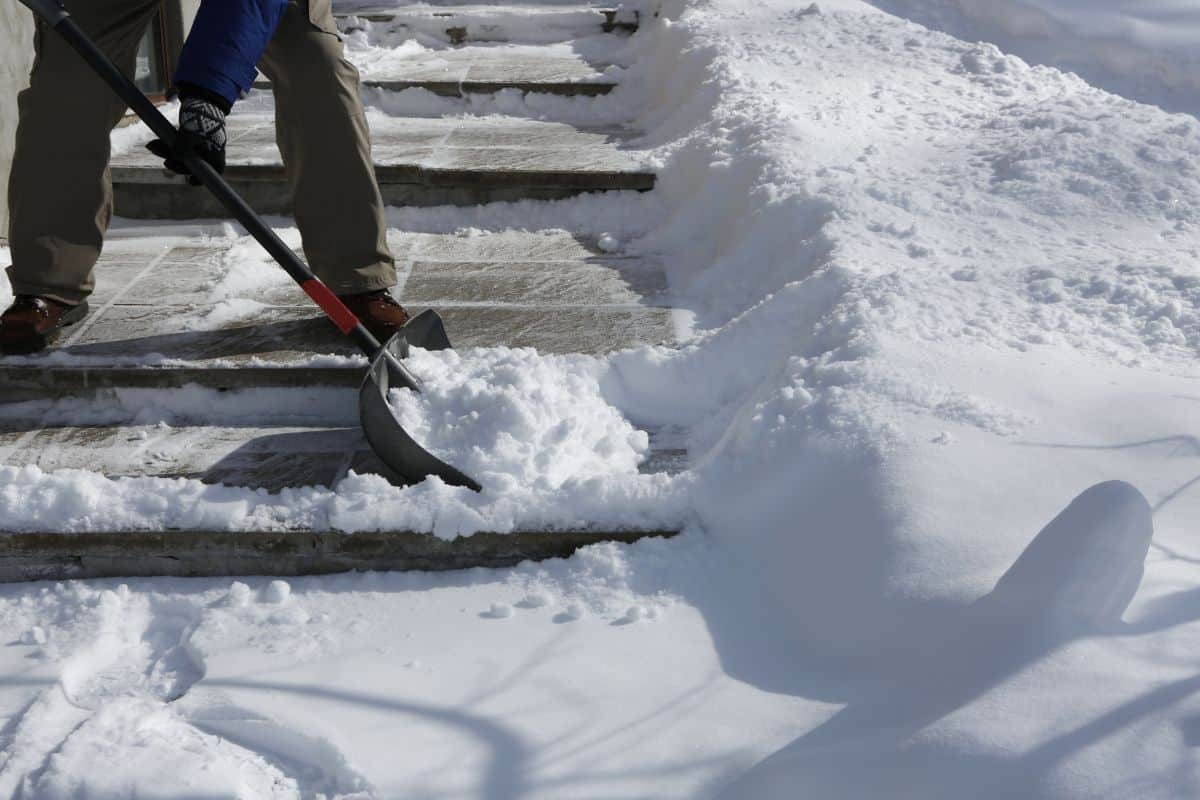
Although shoveling the snow from your property into a nearby road seems fine, doing this is incredibly unsafe and, in some states, illegal. Generally, shoveling snow into a street will cause a blockage, requiring a city sanitation worker to clear it.
Creating such a big issue in the street can lead to accidents and other driver-related problems, so try and keep your snow away from roadways.
According to iProperty Management, almost every US state has some legislation against shoveling or moving snow into the street.
Specifically, all states BUT California, Arizona, Arkansas, Louisiana, Mississippi, Alabama, Florida, South Carolina, Massachusets, and Hawaii have legislation in place.
Therefore, if you live anywhere but these states, you can expect to run into legal issues if you're caught or reported shoveling/dumping snow into a roadway.
As we said, this can pose a danger to others, so always keep that in mind.
Is It Illegal To Shovel Snow Into A Roadway?
Yes, shoveling or moving snow/debris into a roadway in most US states is illegal. As we covered above, all but a few states have legislation against doing this, meaning you can run into issues.
Depending on your city, there may be fines, penalties, and legal ramifications for moving snow into the street, so keep it in your yard when in doubt.
Even though snow everywhere can become a hassle, you want to avoid creating a problem for someone else. Instead, we suggest checking your cities' snow removal policies, even if they offer a removal service.
Especially in some locations, having a few tickets for shoveling snow into the street can mean you have to pay hefty fines. By checking out this website, you can also see a comprehensive list of specific laws and ordinances per state/city.
Do All States Have Snow Shoveling/Removal Laws?
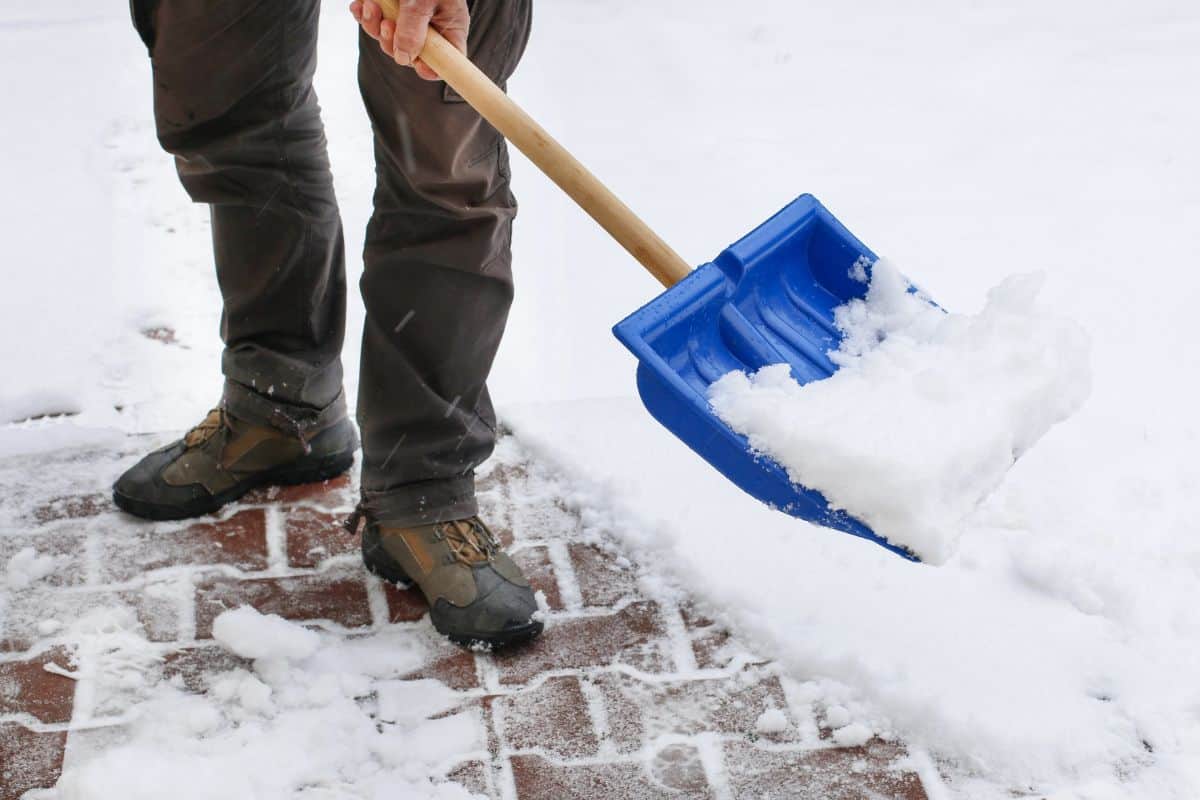
No. Although it would be helpful for all US states to have a similar snow shoveling law or recommendation, this has not been accomplished.
However, there are plenty of states and cities with somewhat stringent policies, which you'll need to learn and follow.
Let's cover some big states and what their snow shoveling laws are (or if they have them) below:
New York
The state of New York doesn't have a unified snow shoveling law, although certain cities do have stringent policies.
For example, in New York City, "every owner, lessee, tenant, occupant, or manager must clean slush, snow, and ice from sidewalks adjacent to their properties."
Residents are also barred from shoveling the snow from their property into the street, which can result in fines of up to $350. Furthermore, you don't want to ignore this rule because you'll also get a penalty for letting snow take up walkways on your property/near it.
The city of Rochester offers a snow plowing service for sidewalks, so that's a nice bonus for residents.
Illinois
If you live in Illinois, you will likely have a statewide ordinance for snow removal. Generally, if it snows in your city/location within Illinois, you want to try and clear the sidewalk and avoid putting the snow or ice into the road.
According to the Illinois 745 ILCS 75 Snow and Ice Removal Act, as long as whoever owns, leases, or manages the property with snow tries to remove it, they will not be held accountable for injuries sustained by those walking by.
So that protects you from legal action if someone falls on the sidewalk in front of or within your property. However, the state does not want you throwing that snow into the street: so try and move it to a corner or under a tree.
Pennsylvania
If you are in Pennsylvania, you will need to clear the sidewalk/pathway near your property if it snows. According to state law, property owners are responsible for the maintenance of sidewalks.
Furthermore, if you are in Philidelphia, Code 10-720, you'll need to "clear a path of not less than 36 inches in width on all sidewalks abutting the building or premises within 6 hours after the snow has ceased to fall."
Additionally, if the width of any pavement measured from the property line to the curb is less than three feet, then you only need to clear the pathway 12 inches in width.
Ohio
Ohio does not have a statewide policy for removing snow from your property.
However, the state does empower local jurisdictions to create their measures/regulations for snow shoveling and removals, so there will likely be somewhere you live.
Furthermore, the property owner will be liable if your measures to clear a sidewalk or yard put others at risk or cause a road blockage.
According to the city of Dayton’s Code of Ordinances, Sec.95.17-18, all property owners or residents will need to remove snow or ice from sidewalks near or on their property within 12 hours of snowfall.
Colorado
For those in Colorado, there is a statewide ordinance against removing snow and placing it into a roadway.
CO Rev Stat § 43-5-301 (2016) applies to all public streets and essentially bars you from shoveling snow from your property into the immediate roadway.
It also requires Colorado residents to remove snow from immediate sidewalks within 24 hours of snowfall, so this is a strict uniform requirement.
Furthermore, if you live in Denver, Municipal Code Sec. § 49-551.1. Cleaning Sidewalks requires "the owner of any building, property or vacant lot in the city to maintain the sidewalks, the parking and the curbs, i.e., the area from the property line to the gutter."
You also want to avoid moving snow into the gutter, which can result in a fine from the state.
Michigan
If you live in Michigan and want to shovel snow from your yard, you can't move it onto any public road, sidewalk, or property.
According to MI Comp L § 257.677a, "a person shall not deposit, or cause to be deposited, snow, ice or slush on any roadway or highway."
Doing this can result in hefty fines from your city/state, so try and avoid this if possible. And, if you're in Dearborn, City Code, Sec Sec.13-2(32), Sec.13-71, 13-5.1 requires residents and property owners to keep sidewalks and ramps to crosswalks clear of snow and ice.
Can I Shovel Snow Into My Neighbor's Yard?
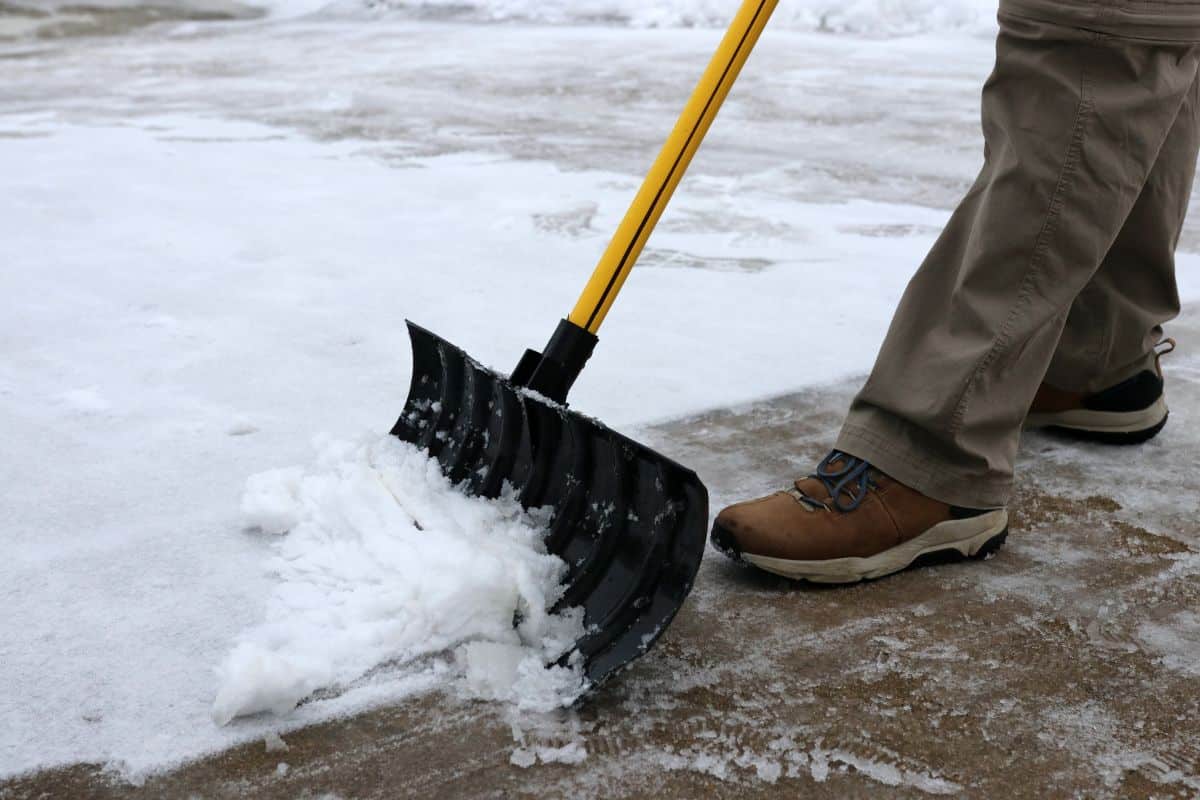
Even if your neighbor isn't friendly to you, we don't recommend shoveling snow into their yard. Generally, moving snow onto someone else's property is considered trespassing.
If you do this, your neighbor could sue you, or vice versa if they're blowing it into your yard. Many lawyers recommend against doing this as it can become a messy legal battle.
For example, if you shovel or blow snow into your neighbor's yard and they fall, they are within their full legal rights to take action against you.
You could be on the line for heavy fines and jail time for even more severe injuries. So, before you push the snow from your property into your pesky neighbors', consider the devastating consequences.
Some states and cities have even pushed for legislation against this, like the city of Bismarck.
Do You Have To Remove Snow From Your Driveway?
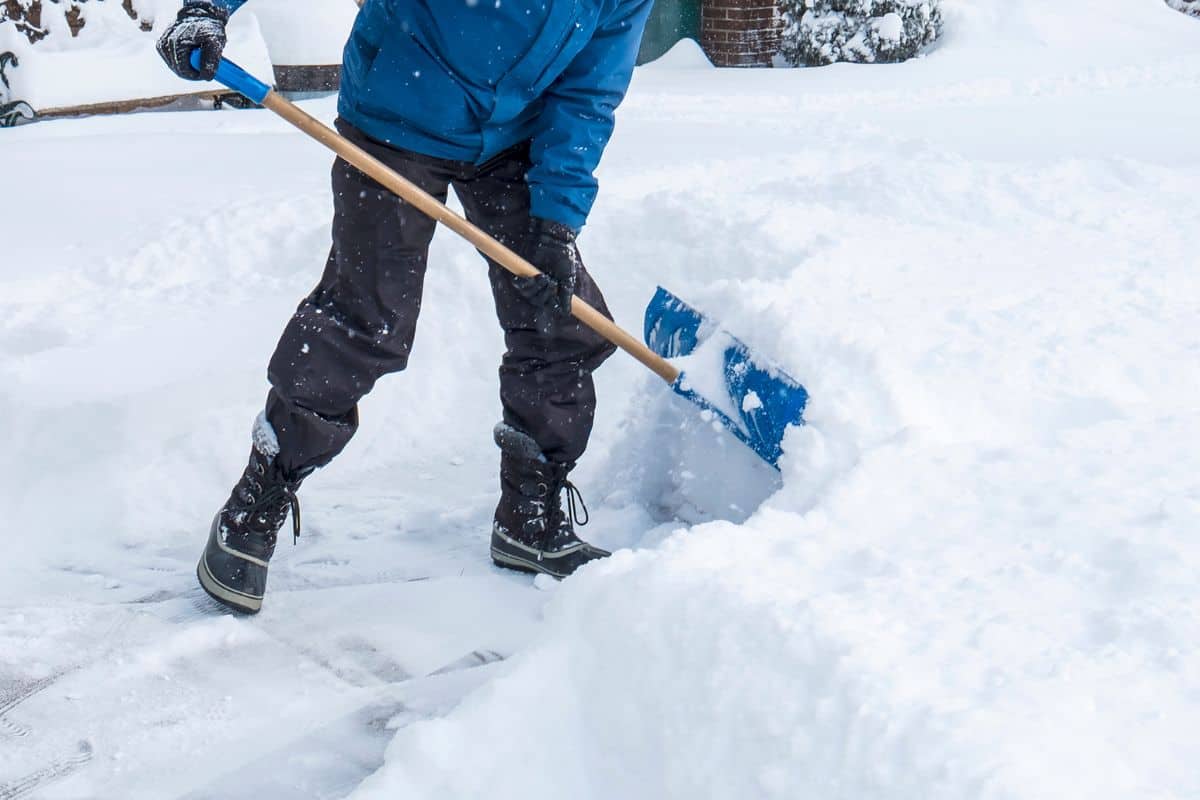
Although many states aren't as strict with driveway snow removal as sidewalk removal, you should still try and do this. Typically, when your driveway fills with snow, that can make pulling in and out almost impossible.
Especially if you or someone you live with is older, that can cause an accident. Like clearing the sidewalk near your home, clearing the snow from the driveway is also a good routine to follow.
According to SBC Outdoor Services, some states require you to remove snow from your driveway, even if it doesn't technically affect the general public.
That is mainly to ensure the safety of residents and keep people accident-free.
Again, if the snow is still falling and you aren't up to it, feel free to wait a day or so until things clear up. Furthermore, if the weather is nice enough post-snow, you might be able to let mother nature clear your driveway instead!
To Finish Things Up
Whether you live somewhere with constant snow or want to get ahead of your city's ordinances, it's always good to know what to do when shoveling snow.
We found that you do not want to shovel snow into the street or onto public sidewalks. Not only is this unsafe for you, but it can become a major danger to others in the area.
Many states prohibit this and will even fine you if caught obstructing roadways or pathways. So, the next time it snows: move the excess slush into a corner or under a tree.
Made it to the end? Check out these helpful related articles!
Can Palm Trees Survive Snow? [The Answer May Surprise You!]
